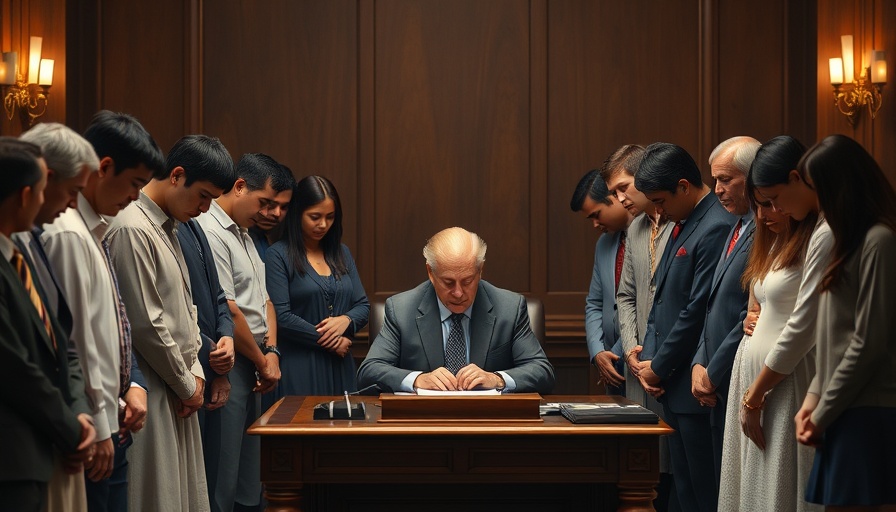
A New Chapter in Texas History: Resisting McCarthyism
The recent formation of the Alliance for Texas History demonstrates a vital commitment to inclusive scholarship in a rapidly changing political climate. With an environment reminiscent of McCarthyism—a term that evokes fears of censorship and ideological conformity—historians and educators are rallying to ensure that diverse narratives of Texas' past are preserved and respected.
Historical Context: Echoes of McCarthyism
Historian Nancy Baker Jones recalls the grim legacy of McCarthy-era politics, which saw the persecution of countless individuals simply for their beliefs. In a modern parallel, the Alliance's creation was catalyzed by a contentious political atmosphere where history itself is under attack. "It's crucial to confront these issues because the stories we tell shape our understanding of freedom and community,” Jones emphasized during her keynote address.
A Response to Contemporary Challenges
The Alliance's inaugural conference held at Texas State University showcased how historians are confronting legislative changes that threaten educational content. State lawmakers recently passed Senate Bill 37, a law that could undermine academic freedom by shifting control over curricula from faculty to institutional boards. This move raises alarms about who gets to tell Texas history and which stories are deemed important.
The Role of Business Leaders in Promoting Inclusive History
For business owners and leaders, understanding the socio-political landscape is crucial for strategic growth. Acknowledging diverse histories can enhance community relationships and open pathways for collaboration. By supporting educational initiatives that promote inclusive scholarship, businesses can contribute to a more reflective and comprehensive historical narrative. This, in turn, fosters a culture of acceptance and innovation—essential elements for sustainable growth in today’s economy.
Future Predictions: The Consequences of Censorship on Business and Society
As history is increasingly weaponized in political discourse, the implications for business leaders are profound. Ignoring the importance of diverse narratives may limit market opportunities and alienate potential customers. Companies that embrace inclusivity can differentiate themselves in a competitive landscape, understanding the value of diversity as not just a social imperative but a business opportunity.
Practical Steps Forward: Engaging with Local Histories
Business leaders can take practical steps to ensure that diverse histories are not only acknowledged but celebrated. Partnering with local educational institutions and historical societies, and sponsoring community events focused on history can create a network of shared understanding and respect. Such engagement not only enhances a company’s reputation but also builds a stronger, more informed community.
Concluding Thoughts: Why Every Voice Matters
The Alliance for Texas History is more than just an organization; it represents a movement to ensure that all stories are told. By embracing diverse perspectives within our narratives, we not only enrich our understanding of history but also pave the way for a more inclusive future. As business leaders, being aware of and fighting against the new McCarthyism is not merely a cultural endeavor—it’s a strategic one that will inform our decisions and actions moving forward.
 Add Row
Add Row  Add
Add 




Write A Comment